Skardu is located in the 10 km wide by 40km long Skardu Valley, at the confluence of the Indus river (flowing from near Kailash in Tibet and through neighbouring Ladakh before reaching Baltistan) and the Shigar River. Skardu is situated at an altitude of nearly 2,500 m (8,200 feet). The town is surrounded by grey-brown coloured mountains, which hide the 8,000 metre peaks of the nearby Karakoram range.
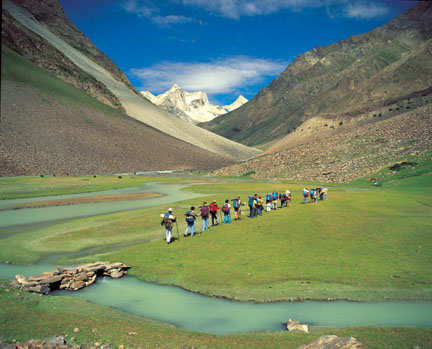
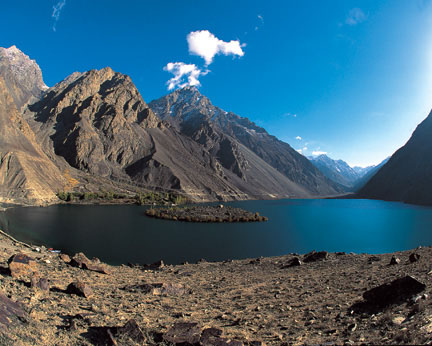
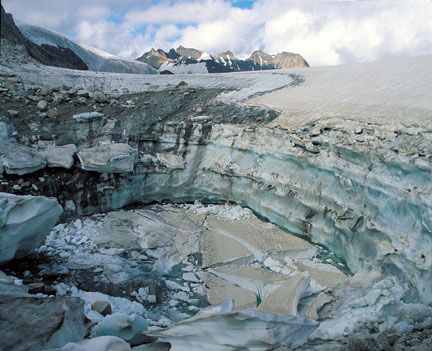
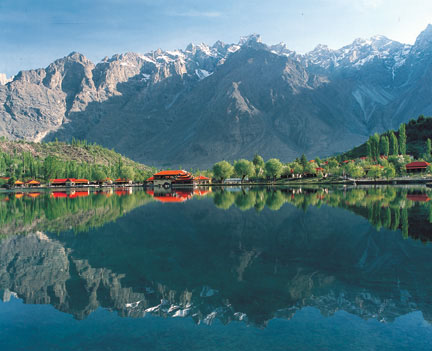
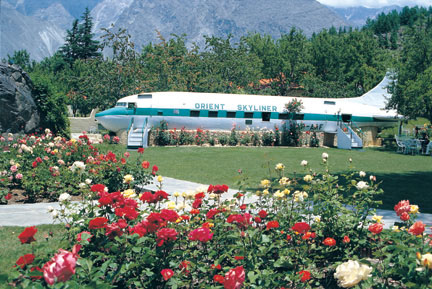
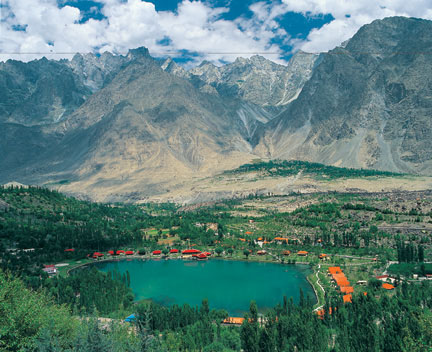
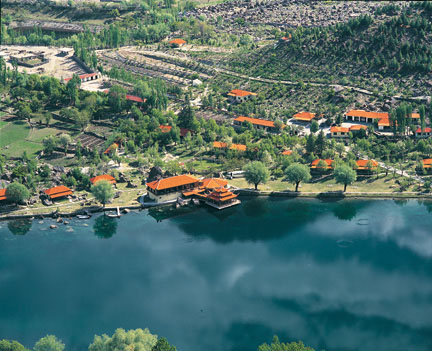
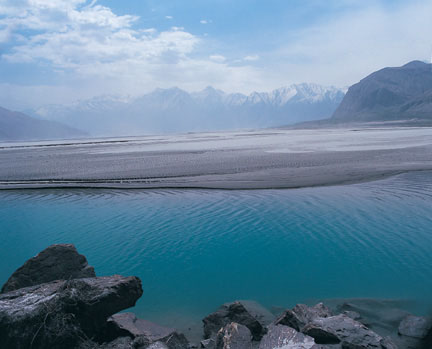
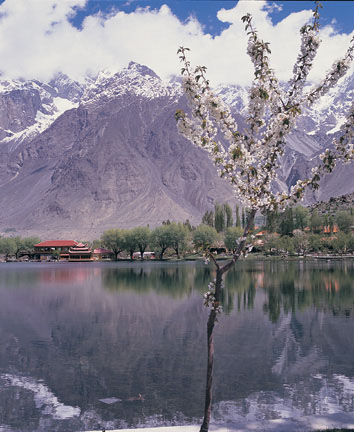
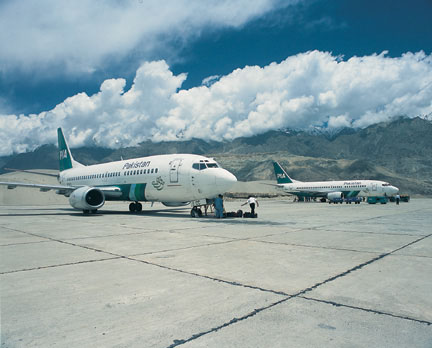
Tourism, trekking and mountain expedition base
Skardu, along with Gilgit, are the two major tourism, trekking and expedition hubs in northern Pakistan. The mountainous terrain of the region, including four of the world's fourteen Eight-thousander peaks (8,000m and above), attracts the attention of tourists, trekkers and mountaineers from around the world. The main tourist season is from April to October; outside this time, the area can be cut off for extended periods by the snowy, freezing winter weather.
Accessible from Skardu by road, the nearby Askole and Hushe Valleys are the main gateways to the snow covered 8,000 m peaks including K2, the Gasherbrums, Broad Peak and the Trango Towers, and also to the huge glaciers of Baltoro, Biafo and Trango. This makes Skardu the main tourist and mountaineering base in the area, which has led to the development of a reasonably extensive tourist infrastructure including shops and hotels. However, the popularity of the region results in high prices, especially during the main trekking season.
Treks to the Deosai Plains, the second highest in the world (at 4,100 m or 13,500 feet) after the Chang Tang in Tibet, either start from or end at Skardu. In local Balti language, Deosai is called Byarsa, meaning 'summer place'. With an area of approximately 3,000 square kilometres, the plains extend all the way to Ladakh and provide habitat for snow leopards, ibex, Tibetan brown bears and wild horses.
SATPARA DAM PROJECT:- is a project inagaurated in 2002 and to be completed by december 2010. It is 7 kms away from skardu city and its altitude is 8,700 feet moreover it will also pond the water about 90,000 acre feet. The main source of water is melting ice of DEOSAI PLANES during summer season. It is a multipurpose project, which will produce 13 Megawatts hydro generation, irrigate 15,000 acres of land and also provide 13 cusecis drinking water daily to Skardu city.
On 29 August 2009, the Gilgit-Baltistan Empowerment and Self-Governance Order 2009, was passed by the Pakistani cabinet and later signed by the President Asif Ali Zardari. It granted self-rule to the people of the former Northern Areas, now renamed "Gilgit-Baltistan," by creating, among other things, an elected legislative assembly.On the other hand there has been criticism and opposition to this move by Pakistan in Pakistan ,India ,and Gilgit Baltistan .
The town and the local people
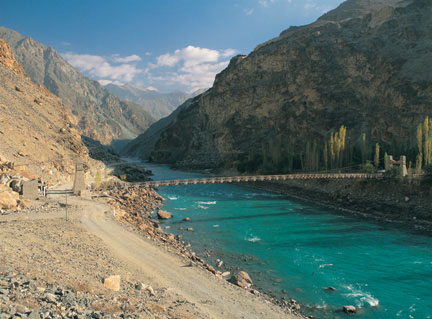
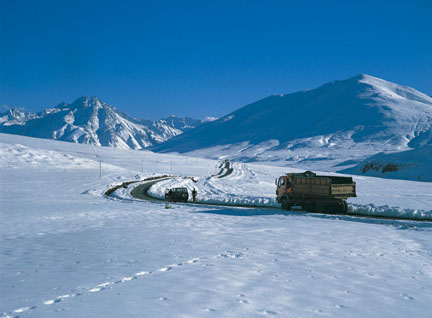
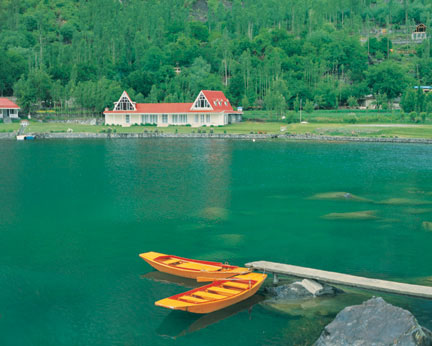
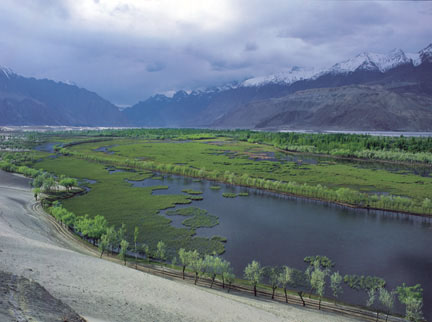
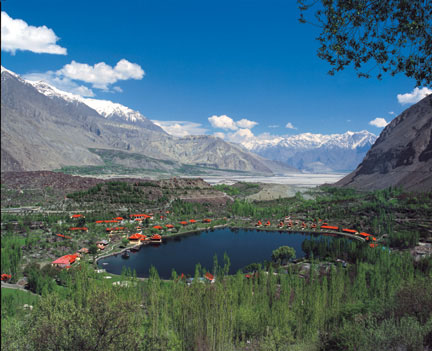
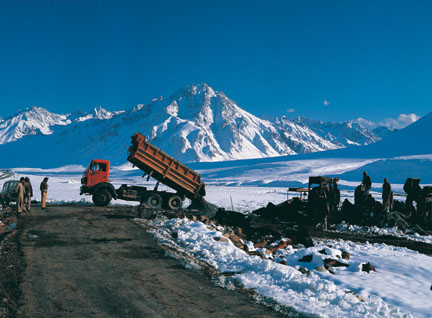
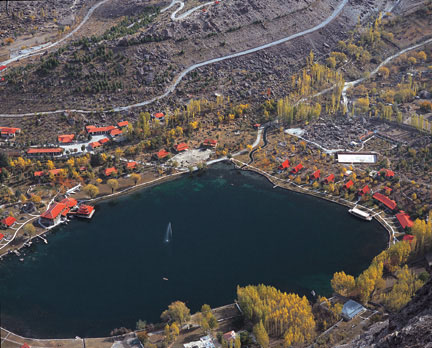
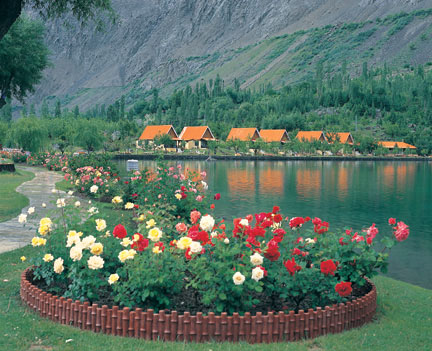
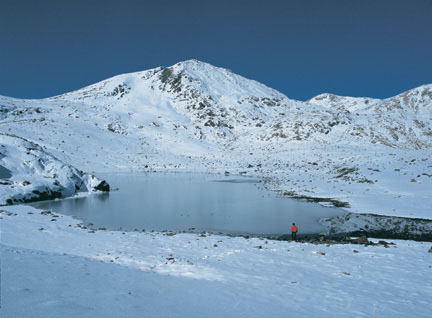
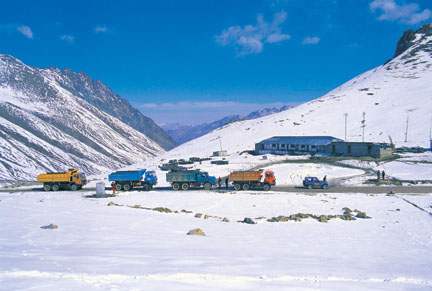
The town and the local people
The town has developed along the main road passing through it and to either side of this road is situated the New Bazaar (Naya Bazaar), with hundreds of shops offer almost everything (trekking supplies, souvenirs, local goods, etc.). To the west one finds Yadgar Chowk (with local monument) and from there, the quarter behind Naya Bazaar, to the right hand side is the older Purana Bazaar. Travelling west from Naya Bazaar is a polo ground and next to that, Kazmi Bazaar.
Skardu appears remote, dusty town at first glance, but the mixture of people here make it colourful and ethnically diverse. The crowded streets are mainly populated by Balti Tibetans and many of the local neighbourhoods (mohallahs) have names that reflect this too (i.e. Khache-drong, Khar-drong, Olding, Kushu-bagh, Pakora, Thsethang, Sher-thang, Nagholi-spang etc.). Due to this strong presence, Skardu has sometimes been referred to as the little Tibet of Pakistan.
However, many other ethnic groups are present in Skardu including Shins, Pashtuns, Punjabis, Hunzakuts and even Uyghur, due to the close proximity of Baltistan to the respective regions. Since the creation of Pakistan people of various ethnicities from various regions of Pakistan have emigrated here.
All the above ethnic groups are devout Muslims. This includes the Balti-Tibetans, who converted from Tibetan Buddhism in the 16th century (the only sizeable group of Tibetans to have undergone such a conversion). Shia Islam has a strong presence in Skardu.
Famous personalities of Skardu valley. S.Mehdi Shah, present chief minister of Baltistan Province. Sheikh Nisar of Gamba. Fida Mohamad Nashad of Hussain Abad. Wazir Shakeel Agha of Ali Abad. Syed Ahmad Ali Shah of Gamba.
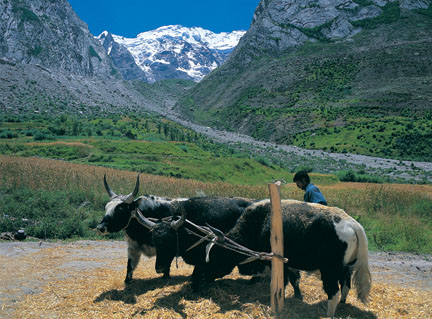
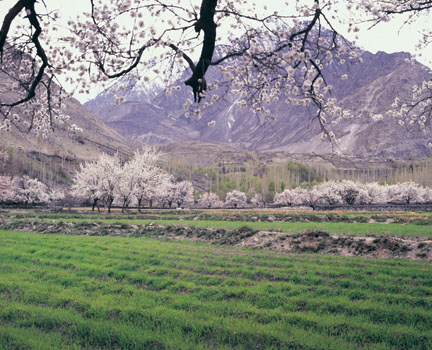
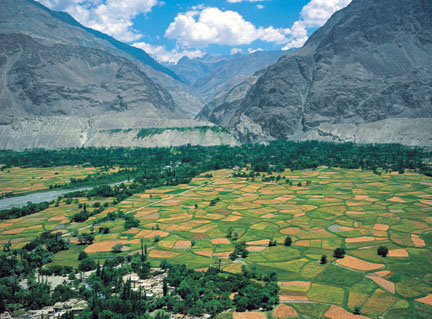
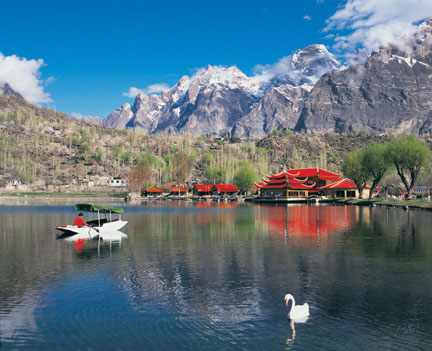
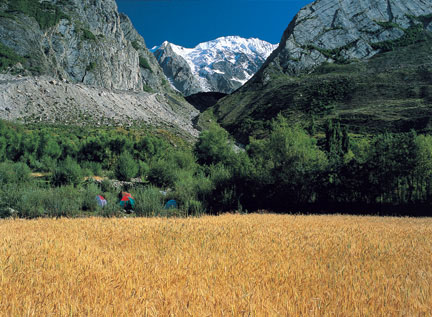
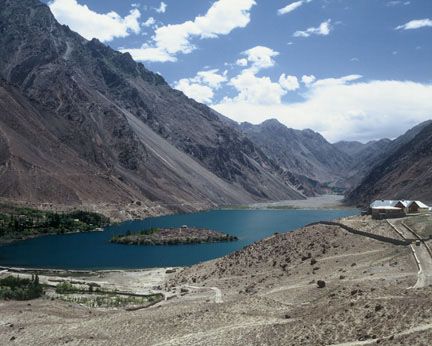
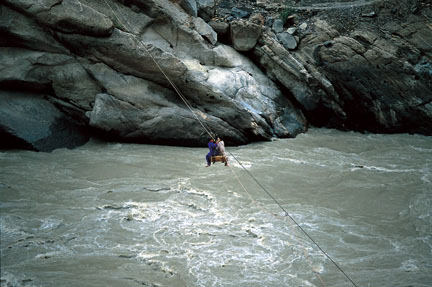
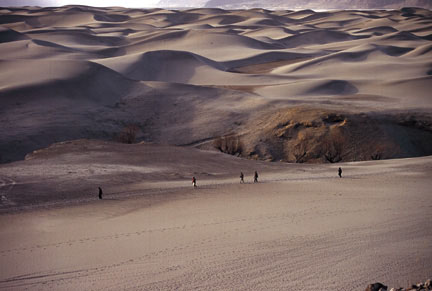
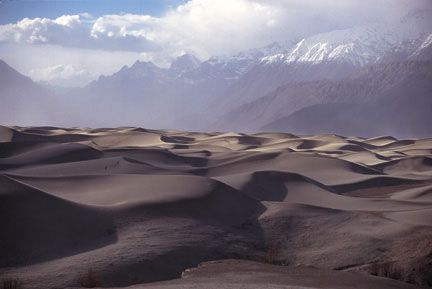
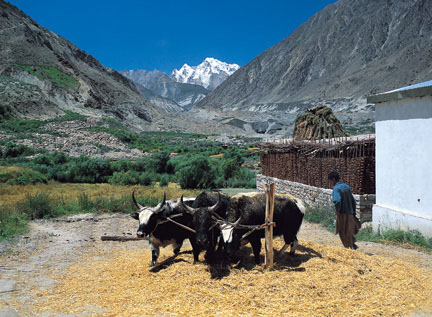
Weather and climate
The climate of Skardu during the summer is moderated by its mountain setting and the intense heat of lowland Pakistan does not reach here. The mountains also block out the summer monsoon and summer rainfall is thus quite low. However, these mountains result in very severe winter weather. During the April to October tourist season, temperatures vary between a maximum of 27°C and a minimum (in October) 8°C. However, temperatures can drop to below -10°C in the December-to-January midwinter period. The lowest temperature of the year can reach -25°C
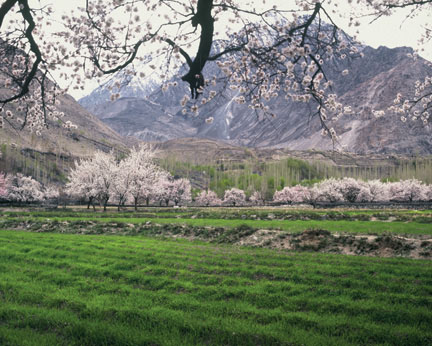
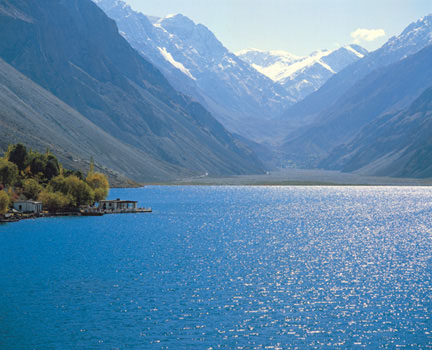
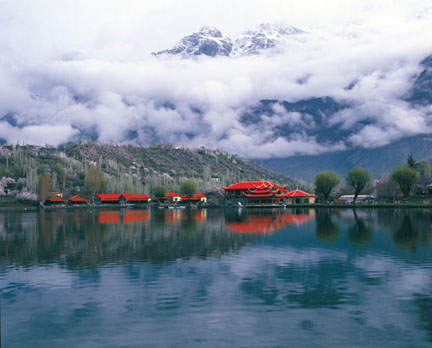
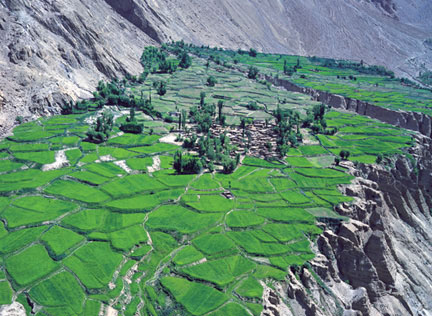
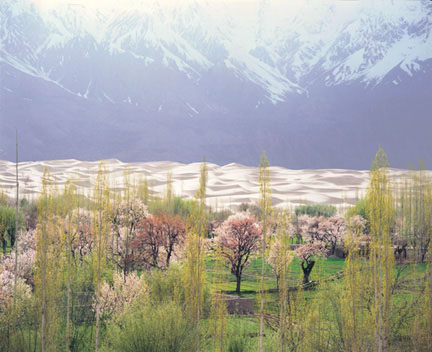
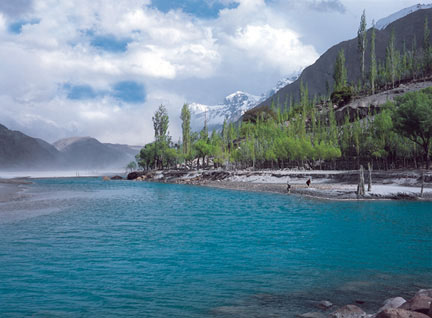
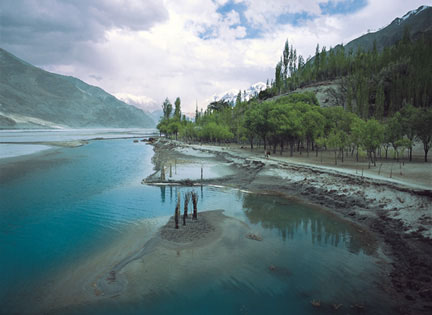
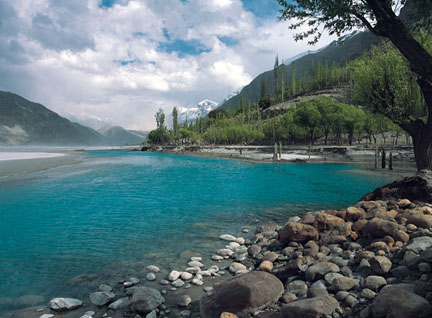
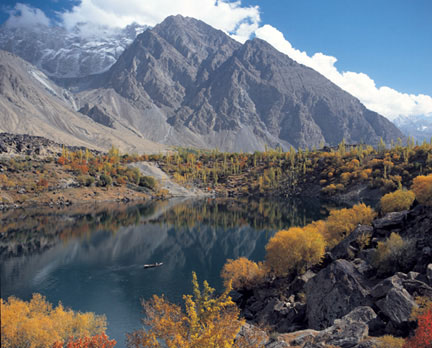
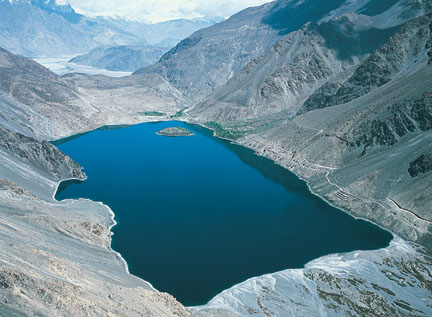
Transport
Skardu is accessible by two methods, road or air. The normal road route into Skardu is via the Karakorum Highway and a linkroad into the Skardu Valley from it. There are also four or five other road links to Kashmir and Ladakh. Alternatively, there are normally one or two flights daily between Skardu Airport and Islamabad. The high cost of air travel means that road travel via the Karakorum Highway and the link road onward to the Skardu Valley is often the preferred option of locals and tourists alike.
The climate can have adverse affects on transport in and out of the Skardu Valley, as Skardu becomes snowbound during the winter months. Often the roads in and out of Skardu (and other Northern Areas locations) can be blocked for weeks at a time depending on conditions (though two to five days is more normal), sometimes leaving air travel as the only feasible alternative. However, air travel in winter is also subject to disruption due to the unreliable Skardu weather and flights can occasionally be delayed by several days.




